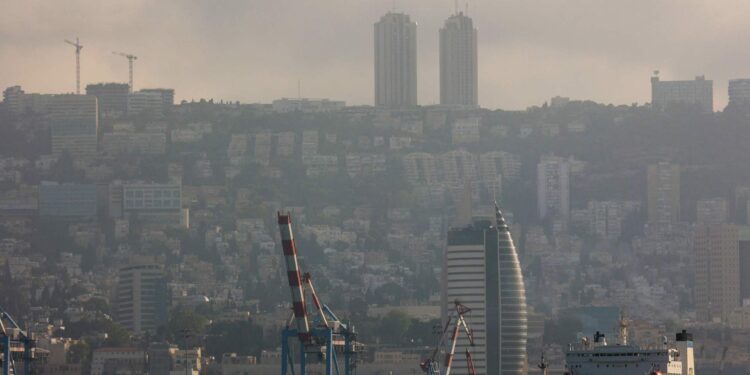1/18/2025–|Last updated: 1/18/202512:27 AM (Mecca time)
The Israeli port sector is facing an increasing state of chaos and congestion, as ongoing delays in regulating the market cause dozens of ships to pile up and cause the economy huge daily losses.
According to a report revealed by the Israeli newspaper Calcalist, 55 ships were stuck outside Israeli ports the day before Thursday, which brings to mind the crisis witnessed by global supply chains during the Corona pandemic.
However, this time the problem is entirely local and global conditions cannot be blamed, according to the newspaper.
Delayed market regulation
According to the newspaper, the temporary permits that allowed the ports of the new port in Haifa Bay and the Port of the South to unload general goods expired in April 2024, and since then they have not been renewed, despite warnings issued by the Ministry of Finance, importers and industrialists that non-renewal will cause severe congestion. In ports.
It is estimated that the daily losses resulting from ships waiting at sea amount to hundreds of thousands of shekels, which negatively affects the local economy and Israel’s ability to manage import operations efficiently.
Government conflict and unjustified postponements
Three government agencies were assigned to resolve the crisis:
- The Ministry of Transport, which is responsible for the Seaports Authority and the Israel Ports Company.
- Ministry of Finance.
- Governmental Companies Authority.
Although nearly a year has passed since the start of organizing efforts, these parties have so far failed to reach an agreement.
According to Calcalist, part of the crisis is due to a dispute between the old ports of Haifa and Ashdod (Ashdod) on the one hand, and the new ports on the other, with the old ports demanding financial compensation and regulatory facilities in exchange for allowing the new ports to continue unloading operations.
This struggle over competitive advantages leads to the postponement of effective solutions, exacerbating economic stagnation.
Emergency problems complicate the crisis
Among the most prominent factors hindering the process of regulating ports is the dispute over Pier 25, located near the port of Ashdod.
Initially, the Ministry of Finance and Transport agreed to temporarily grant it to the port of Ashdod, but the State Companies Authority rejected the decision on the grounds that the government port was not effective enough, according to what the newspaper reported.
The “Israel Ports” company conducted a survey to find out whether there was interest from other parties in operating the pier, and the survey ended two days ago with receiving several offers from competitors for the government port, which further complicates the issue. This dispute is expected to cause additional delays that may last for several months.
The crossing crisis with Jordan worsens the situation
The crisis was not limited to seaports, but also extended to the border crossings with Jordan, further disrupting the flow of goods to the Israeli market.
For several weeks, the crossing point at the Jordan River has been witnessing unprecedented congestion with trucks, with more than 500 trucks waiting to enter.
According to the head of the Union of Israeli Industrialists, each day of delay costs the Israeli economy 1.4 million shekels (about 400,000 dollars), as companies are forced to pay 411 shekels ($115) per day for each stuck Jordanian truck.
In light of this growing chaos, the head of the Union of Industrialists, Ron Tomer, called for an emergency session in the Knesset Economics Committee to resolve the border crossing crisis, warning that continued delays would lead to paralysis in Israeli supply chains and exacerbate the economic crisis.
Government procrastination
Despite all these crises, the Ministry of Transport insists that it will complete the regulation process within two weeks, but it cannot guarantee the satisfaction of all parties, according to Calcalist.
As the delays continue, Calcalist estimates that the situation at ports and border crossings is worsening, raising serious doubts about the Israeli government’s ability to manage the import and export file efficiently.



